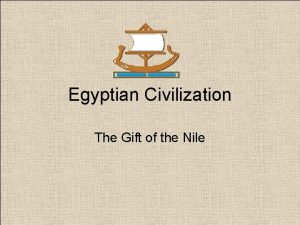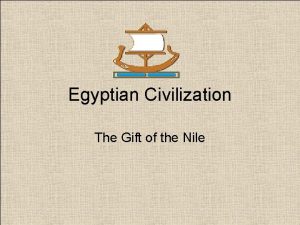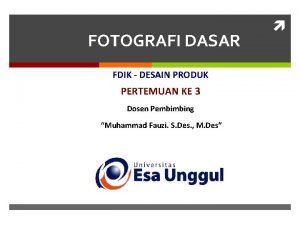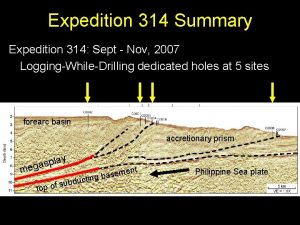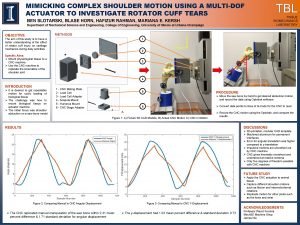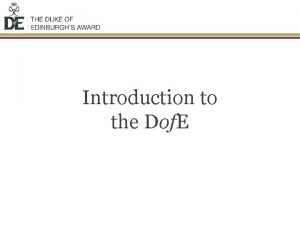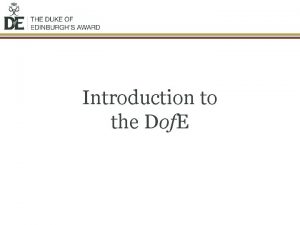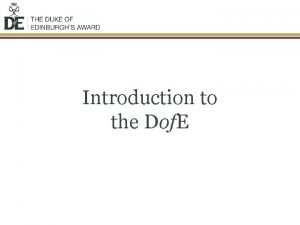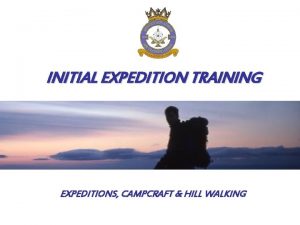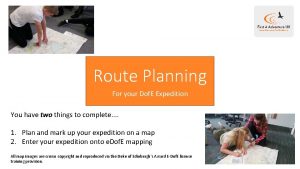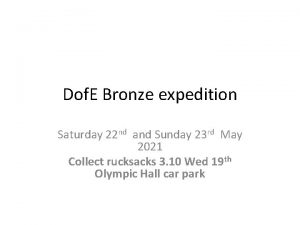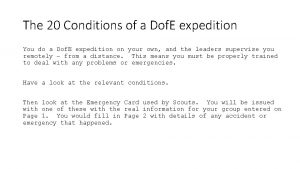Introduction to Dof E Expeditions Expedition Aim To



















- Slides: 19

Introduction to Dof. E Expeditions

Expedition Aim To inspire young people to develop initiative and a sense of adventure and discovery, by planning, training for and completing an adventurous journey as part of a team.

The expedition process Forming Expedition Groups Training Practice Expedition Planning Qualifying Expedition Presentation

Timescales for expeditions Bronze Silver Gold

20 Conditions of the expedition 1. Your expedition must be by your own physical effort, without any motorised or outside assistance. 2. Your expedition must be unaccompanied and selfsufficient. 3. Your expeditions must be supervised by an adult who is able to accept responsibility for the safety of you and your team. 4. Your expedition must have an aim. 5. You must be properly equipped for your expedition.

20 Conditions of the expedition 6. You must have completed the required training and practice expeditions. 7. At least one practice expedition must be undertaken at each level of the programme, in the same mode of travel in a similar environment to the qualifying expedition. 8. You and your team must plan and organise your expedition. 9. You must be assessed by an approved accredited Assessor to the Dof. E. 10. There must be between four and seven people in your team (eight people may be in a team for modes of travel which are tandem).

20 Conditions of the expedition 11. You must be within the qualifying age of the Dof. E programme level. 12. Participants must be at the same level of assessment. 13. Your team must not include anyone who has completed the same or higher level Dof. E expedition. 14. Your overnight accommodation should be camping. 15. Your expedition must be the minimum number of days required for your Dof. E level.

20 Conditions of the expedition 16. Your expedition should normally take place between the end of March and the end of October. 17. Your expedition should be in the recommended environment for your Dof. E level. 18. You must do the minimum hours of planned daily activity for your Dof. E level. 19. You should cook and eat a substantial meal each day. 20. You must create and deliver a presentation after your expedition to complete the section.

Mode of travel • 1. Your expedition must be by your own physical effort, without any motorised or outside assistance. Walking Cycling Horse Riding Kayaking Sailing Paddleboarding Skateboarding Wheelchair

Expedition aim • 4. Your expedition must have an aim. • About planning an effective, challenging expedition with a clear outcome – simply travelling through the countryside is not enough. • Relate to the interests/abilities of participants • Relevant to the area you are travelling through

Expedition kit • 5. You must be properly equipped for your expedition.

Expedition training • 6. You must have completed the required training and practice expeditions. • First Aid • Camp craft • Navigation • 1 practice expedition with Expedition Supervisor (or as many as it takes!)

Expedition planning • 8. You and your team must plan and organise your expedition. • What mode of travel will • Does your route meet the requirements of the Dof. E you use? Level you are at? • Where will you go? • Have you submitted the • When will you go? relevant forms to us? • What will your expedition • Are you fit enough to aim be? undertake the expedition? • Have you all completed your training?

Expedition season • 16. Your expedition should normally take place between the end of March and the end of October. November December January February Winter Training Spring Expeditions Summer Holidays September October March April May June July August

Expedition environment • 17. Your expedition should be in the recommended environment for your Dof. E level. Bronze Land Environment (walking, cycling and horse riding) Normal rural countryside which can be familiar to the participants. Silver Land Environment (walking, cycling and horse riding) Normal rural open countryside or forest, which is unfamiliar to the participants. Where possible the expedition should be in, or at least include, areas of open country or forest. Gold Land Environment (walking, cycling and horse riding) Wild country, remote from habitation, which is unfamiliar to participants. Remote estuaries, marshes, fens and coastal areas may provide an appropriate environment for an expedition with the emphasis on exploring rather than doing the journey. Wild country is defined as an area remote from habitation. Dof. E expeditions should be through, rather than over, wild country.

Expedition activity • 18. You must do the minimum hours of planned daily activity for your Dof. E level. Level Minimum hours of planned activity each day Bronze At least 6 hours during the daytime (at least 3 of which must be spent journeying) Silver At least 7 hours during the daytime (at least 3½ of which must be spent journeying) Gold At least 8 hours during the daytime (at least 4 of which must be spent journeying)

Expedition food • 19. You should cook and eat a substantial meal each day. • • • Communal cooking Dietary requirements Sharing equipment No refrigeration Nutritional needs Health & safety

Expedition presentation • 20. You must create and deliver a presentation after your expedition to complete the section. • • a written report a comic strip or storyboard a Power. Point presentation performed as interpretive dance/theatre/a skit/poetry/song • an exhibition • a product such as a leaflet, poster or film

Have fun!
 Qualifying expedition aim
Qualifying expedition aim The crusades were military expeditions undertaken by
The crusades were military expeditions undertaken by The crusades were military expeditions undertaken by
The crusades were military expeditions undertaken by Military expeditions carried out by european christians
Military expeditions carried out by european christians Fowling expeditions
Fowling expeditions Abyssinia
Abyssinia E dof
E dof Ben dof
Ben dof Dof luas
Dof luas Antonieme vir stomp
Antonieme vir stomp Tamu dof portal
Tamu dof portal Trappe van vergelyking mooi
Trappe van vergelyking mooi Dof margin
Dof margin Fuglestemmer nattergal
Fuglestemmer nattergal Dof of screw pair
Dof of screw pair Dof tbl
Dof tbl Jacobian
Jacobian 3 dof
3 dof E dof e
E dof e Franklin expedition daguerreotypes
Franklin expedition daguerreotypes




